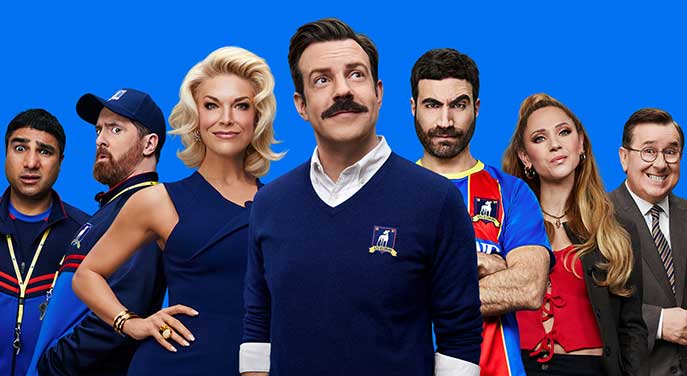 I’m not a big fan of fiction in any format. I prefer that writers clearly elaborate their theories or explain what’s actually happening in the world. I’ve also never been particularly influenced by the latest draw in popular culture.
I’m not a big fan of fiction in any format. I prefer that writers clearly elaborate their theories or explain what’s actually happening in the world. I’ve also never been particularly influenced by the latest draw in popular culture.
Given my disposition, I was surprised to find myself binge watching the hit comedy Ted Lasso on Apple TV+. The program not only makes me laugh, it draws me in. And it even affirms my beliefs about leadership and education.
The premise for the show is ridiculous. Ted Lasso is a successful college football coach in the United States who is hired to coach professional football, what North Americans call soccer, in England. This idea was piloted several years ago for American television but the personality of Ted in the current program is quite different from that of the original.
Ted has to adjust to an unfamiliar world and to the highly critical fan base of a beloved sports franchise. The jokes about differences in language and culture are predictable, but the evolution of the story isn’t what one would expect from a comedy series – or from any television program.
Most films and television programs aren’t realistic because they involve people screaming at each other, insulting one another and even killing each other. That’s simply not what life is like for most of us.
In addition, the image many of us have of a coach in any sport is someone who yells at his players and demeans them. Again, that’s simply not what effective coaches do.
 Ted is a kind man who treats everyone he meets like the most important person in the world. That’s one of the most common characteristics of a good leader.
Ted is a kind man who treats everyone he meets like the most important person in the world. That’s one of the most common characteristics of a good leader.
The main character of this show is so positive that some critics have stated that he demonstrates toxic positivity. I beg to differ. Toxic positivity refuses to delve into negative emotions but this program doesn’t do that. At times, Ted doesn’t know how to deal with negative situations in his life or in the lives of others, but he’s wise and humble enough to accept help when he needs it, just like a real, effective human.
The depth of Ted’s character is revealed in an episode when he’s playing darts with one of the show’s only villains. He quotes Walt Whitman and says, “Be curious, not judgmental.” In other words, be kind to others, treat everyone with respect, encourage them and watch what happens.
The vast majority of people will respond positively to being treated this way. A good coach, teacher or any leader understands that doing so will draw out the best in others. They will not only be open to our instruction, they will begin to believe in themselves as much as we do.
Of course, there will always be people – primarily adults – who see kindness as weakness and display manipulative behaviour. But Ted’s advice even works with them. If we observe them with curiosity, we can learn how to respond effectively.
To this point, there has been no character in Ted’s inner circle who hasn’t displayed growth as a human under his tutelage. He has been able to create a work environment where people respect and truly listen to each other. Every character has their quirks and foibles, however, just like normal people.
Admittedly, we’ve yet to see how the program and its characters will evolve, but the anticipation is all part of the fun.
Ted Lasso is only in its second season and has already garnered many well-deserved awards. It really is a joy to watch a silly and unrealistic comedy about real life.
Gerry Chidiac is an award-winning high school teacher specializing in languages, genocide studies and works with at-risk students. For interview requests, click here.
The views, opinions and positions expressed by columnists and contributors are the authors’ alone. They do not inherently or expressly reflect the views, opinions and/or positions of our publication.
© Troy Media
Troy Media is an editorial content provider to media outlets and its own hosted community news outlets across Canada.


